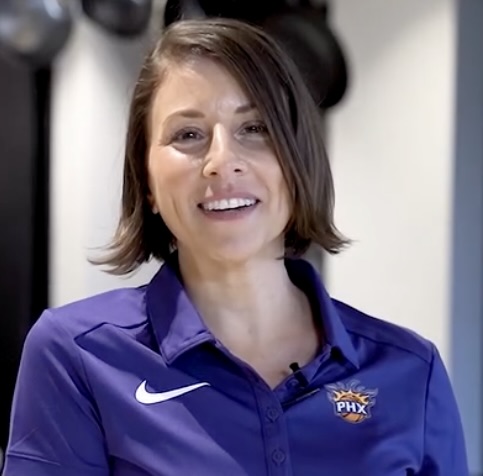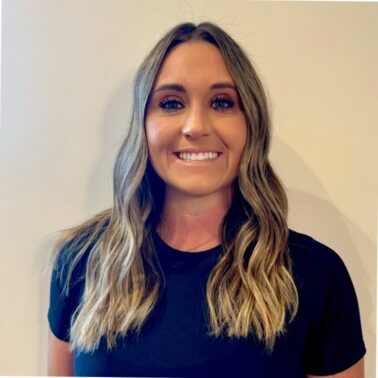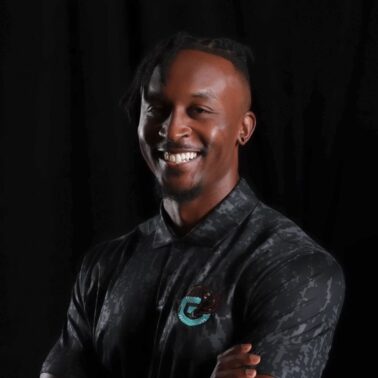“Inflammation is necessary in acute injury; it’s a natural process. But there comes a point when we need to manage it to prevent chronic issues and optimize healing. That’s where nutrition and antioxidants come in.”
Danielle LaFata
What You will learn
- A behind-the-scenes look at the unexpected roles and responsibilities in professional sports nutrition.
- Exploring the future of sports nutrition and how it integrates with overall health and performance.
- Practical strategies for managing inflammation, injury rehabilitation, and recovery using diet and supplements.
- Insights into the use of supplements like fish oil, curcumin, collagen, and HMB for athletic performance and injury recovery.
In the latest episode of the Finding Small Wins podcast, host Adam Loiacono sits down with sports dietitian Danielle LaFata to discuss the intricate world of sports nutrition and its critical role in athletic performance and recovery. This episode is a treasure trove of knowledge for anyone interested in understanding how nutrition can make or break an athlete’s performance.
About Danielle LaFata
Danielle LaFata is a seasoned sports dietitian with over a decade of experience working with elite athletes across various sports. After beginning her journey as a cheerleader at Central Michigan University, she found her passion for nutrition and pursued a master’s degree in Nutrition and Food Science. Danielle has worked with renowned organizations, including the U.S. Men’s National Soccer Team, San Francisco Giants, Arizona Coyotes, and Phoenix Suns. Her extensive experience spans working with professional athletes, military personnel, and Olympians, providing her with a unique perspective on the nutritional needs and challenges faced by high-performance individuals.
The Journey to Becoming a Sports Dietitian
Danielle LaFata’s journey into the world of sports nutrition began in an unexpected place: the cheerleading team at Central Michigan University. With a background in dance, jazz, ballet, and track, Danielle was well-versed in the physical demands of sports. However, it wasn’t until she started working with a personal trainer and met a dietitian to help drop body fat that she truly realized the power of nutrition. This realization led her to switch from pursuing a master’s in business to a master’s in Nutrition and Food Science, setting the stage for her remarkable career.
The Multifaceted Role of a Sports Dietitian
Danielle’s extensive career has taken her from the training grounds of Lifetime Fitness to the bustling arenas of professional sports. As a sports dietitian, Danielle’s role extends far beyond meal planning. She is deeply involved in lab analysis, hydration testing, supplement education, and even food service management. This breadth of responsibilities highlights the importance of a holistic approach to sports nutrition, where dietitians must adapt to the varying needs of different sports and athlete types. Whether it’s preparing smoothies at the World Cup or designing menus for the San Francisco Giants, Danielle’s work is a testament to the versatility required in sports nutrition.
Integrative and Functional Nutrition: The Future of Sports Dietetics
Danielle shares her insights into the growing field of integrative and functional nutrition. This approach focuses on tailoring nutrition to meet the individual needs of athletes, considering factors such as genetics, lab results, and personal preferences. Danielle emphasizes the importance of moving beyond generic dietary recommendations to create personalized nutrition plans that address specific health issues, optimize performance, and enhance recovery.
Nutrition for Injury Rehabilitation and Recovery
A significant portion of the episode is dedicated to the role of nutrition in injury rehabilitation and recovery. Danielle and Adam delve into practical strategies for managing inflammation, optimizing muscle recovery, and supporting bone healing through diet and supplementation. From the importance of maintaining adequate protein intake to the role of antioxidants in reducing muscle soreness, Danielle provides actionable advice on how to use nutrition as a tool for recovery. She also discusses the benefits of supplements like fish oil, curcumin, and HMB, which have been shown to support healing and reduce inflammation.
Understanding Supplements: Fish Oil, Curcumin, Collagen, and HMB
The episode also covers the often confusing world of supplements. Danielle breaks down the benefits of various supplements, including fish oil, which supports brain health and reduces inflammation, and curcumin, which acts as a powerful antioxidant. She also discusses the role of collagen in tendon and ligament health and explains how HMB can help preserve muscle mass during periods of inactivity. By providing a clear understanding of these supplements and their uses, Danielle helps listeners make informed decisions about their nutrition strategies.
Listen here – Finding Small Wins Podcast:
Danielle LaFata: Nutrition Strategies for Injury Rehabilitation
10 Key Takeaways
- Nutrition is Fundamental: A proper diet is essential for athlete performance and recovery, affecting everything from muscle growth to brain health.
- Holistic Approach: Sports dietitians play a multifaceted role, addressing not only diet but also hydration, supplements, and lab analyses.
- Integrative Nutrition: Personalized nutrition plans tailored to individual needs are the future of sports dietetics.
- Protein is Crucial: Maintaining adequate protein intake is vital for muscle recovery and overall health, especially during periods of reduced activity.
- Antioxidants Aid Recovery: Foods rich in antioxidants, like berries and green tea, help reduce inflammation and promote healing.
- Carbohydrates for Brain Health: Carbohydrates are crucial for brain function and recovery, especially following a concussion.
- Fish Oil Benefits: Omega-3 fatty acids from fish oil support brain health and reduce inflammation, making them valuable for athletes.
- Curcumin’s Role: As an antioxidant, curcumin helps manage inflammation and supports the healing process.
- Collagen for Tendon Health: Collagen supplements can help maintain tendon and ligament integrity during recovery.
- Understanding Supplements: Not all supplements are created equal; it’s important to understand the specific benefits and uses of each.
“The next frontier in sports nutrition is integrative and functional. It’s exciting because it looks at the whole person, not just what they eat. It’s about optimizing health and performance through personalized, science-based strategies.”
Danielle LaFata
episode timeline
00:00 Introduction and Background
03:09 Danielle’s Experience in Sports Nutrition
09:09 Roles and Responsibilities of a Sports Dietitian
12:37 The Role of Nutrition in the Rehabilitation Process
14:27 Optimizing Healing with Proper Caloric Intake and Macronutrients
17:27 The Importance of Protein in Tissue Repair and Muscle Maintenance
21:37 The Role of Antioxidants in Managing Inflammation
31:05 Supplementation with Fish Oil (EPA and DHA)
33:57 Curcumin and its Relationship to Turmeric
35:19 The Benefits of Antioxidant-Rich Foods
35:49 Managing Inflammation and Gut Health
39:06 Preserving Muscle Mass with HMB
42:28 Supporting Tendon and Ligament Health with Collagen
45:20 The Importance of Hydration in Recovery
53:02 Nutritional Considerations for Bone Health
01:05:59 Supporting Brain Health and Recovery from Concussions
01:07:33 Optimizing Healing and Performance through Nutrition
01:15:01 Considerations for NSAID Use in Rehab
01:23:06 The Role of Supplements in Rehab
01:27:55 Favorite Sporting Events and Cities
01:30:25 Celebrating Small Wins in the Rehab Process
01:32:28 Finding the Right Balance in Nutrition and Rehab
01:36:10 Exploring Outdoor Activities and Cities in Professional Sports



